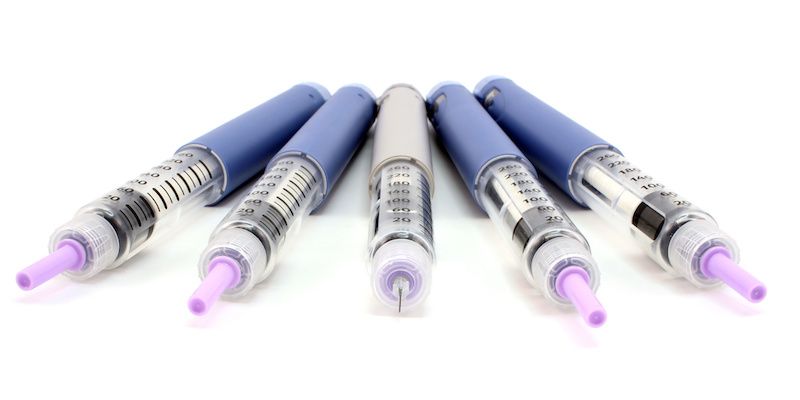- Bone Health
- Immunology
- Hematology
- Respiratory
- Dermatology
- Diabetes
- Gastroenterology
- Neurology
- Oncology
- Ophthalmology
- Rare Disease
- Rheumatology
Webinar: Experts Discuss Avenues to Improve Biosimilar Development Efficiency
A recent webinar featured an in-depth discussion on the impacts that updated guidelines, a reduction in clinical efficacy testing, and biomarker analyses can have on the efficiency of biosimilar development.
A webinar hosted by Biopharma Excellence featured an in-depth discussion on the ways that updated guidelines, a reduction in clinical efficacy testing, and biomarker analyses can have on the efficiency of biosimilar development.
Many experts have called for a reduction in clinical efficacy testing for biosimilars because they may not provide additional safety or efficacy information outside of pharmacokinetic and pharmacodynamic studies are already required. Greater education on the comparable safety of biosimilars compared with their originators could help quell remaining concerns.

Biopharma Excellence is a Germany-based organization that partners with biopharmaceuticals companies to help them develop solutions to the typical scientific, regulatory, and commercialization challenges unique to manufacturing biologic drugs. The live webinar was part of the Science Huddle, a series of quarterly panel discussions, and was titled “20 years of Biosimilars: Are We on the Right Track?”
The presenters emphasized that although biosimilars have the potential to increase access to biologic therapies and reduce health care costs, there are still barriers to their development and adoption, including a long and expensive development process, where manufacturers must conduct a series of preclinical and clinical analyses to obtain regulatory approval.
Leah Christl, PhD, executive director of global biosimilar regulatory affairs and regulatory and research and development policy at Amgen, noted that the first biosimilars were developed to reference the biggest blockbuster originator biologics at the time, which were the largest drivers of global health care spending. However, newer biosimilars are starting to be developed in the rare disease space, suggesting that the pathway for biosimilar development needs to be flexible to ensure that patients with rare conditions can access these drugs.
Orphan drugs can be hard to develop in part because the population of patients with a specific rare disease who are eligible for clinical analyses is much smaller than that for other disease states. Many experts, including speakers at a recent FDA workshop on streamlining biosimilar development, have called for an end to clinical efficacy testing for biosimilars. This would reduce development costs, thus allowing for lower drug prices, and newer data have shown that clinical efficacy tests do not provide meaningful safety and efficacy data outside of already-conducted pharmacokinetic and pharmacodynamic analyses.
“I wouldn't say that the [biosimilar approval] pathway itself is a strict barrier….[but] doing any sort of pharmacodynamic or pharmacokinetic assessment in healthy subjects can’t be done for a variety of reasons. So, when you're talking about a rare disease…how can you work within the regulatory system to get the data that are necessary and make sure that you're doing the right assessment…and that patient safety is at the forefront?” said Christl.
Christian K. Schneider, MD, the moderator, who is also vice president, head of biopharma excellence, and chief medical officer (Biopharma) at PharmaLex, emphasized that more real-world data on newer biosimilars are needed and that regulators are working establish clear guidelines for biosimilar development and approval, including clarification on interchangeability. He recommended that regulators should collaborate with all stakeholders to ensure a safe and efficient biosimilar development process.
Elena Wolff-Holz, MD, global head clinical development at Biocon Biologics, discussed indication extrapolation, where biosimilars are approved for multiple or all indications of the reference product despite only being tested in certain populations. Wolff-Holz championed the need for more education targeted at health care professionals about the approval process for biosimilars and stressed that the need to make the development process more cost-effective should be balanced with concerns about biosimilar safety.
“I'm not saying we do not need any clinical trials at all. I think we need to discuss ways of bringing the complexity down—the efficiency, the cost, the manageability, especially for these [newer] products. A possibility could be to go more with noninferiority trials with asymmetric margins that are already partially covered in guidelines.”
The use of biomarkers for biosimilar research was another big topic. Pharmacodynamic biomarkers can help researchers confirm the comparative safety and efficacy of a product. Martin Schiestl, PhD, global regulatory affairs policy head at Sandoz, mentioned there are well-established biomarkers for insulin products, which are unique in the biologics space because the FDA does not require additional switching studies to approve an insulin biosimilar as interchangeable.
Wolff-Holz argued that using biomarkers to establish clinical efficacy will have to depend on the type of product and mechanism of action; however, there are clear places where they can be useful. Christl echoed this, saying these markers could be helpful for future biosimilars for antibody drug conjugates, bispecific antibodies, vaccines, and cell and gene therapies.
Schiestl concluded, “I think that every step you took in the past was necessary in order to make a good, informed decision. So how do move forward?...We are in a fast-changing development space. Maybe in a couple of years, we’ll reach a position where we don't need efficacy studies on a routine pace, globally.”
Newsletter
Where clinical, regulatory, and economic perspectives converge—sign up for Center for Biosimilars® emails to get expert insights on emerging treatment paradigms, biosimilar policy, and real-world outcomes that shape patient care.
